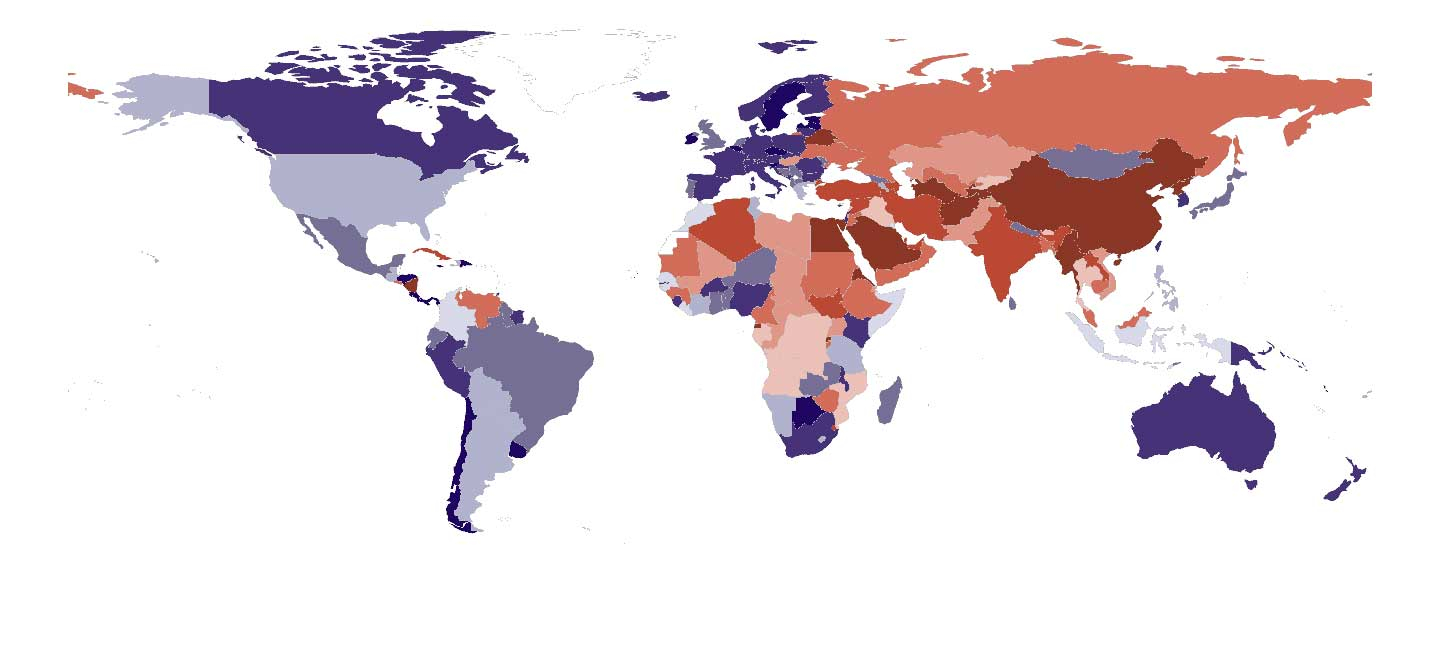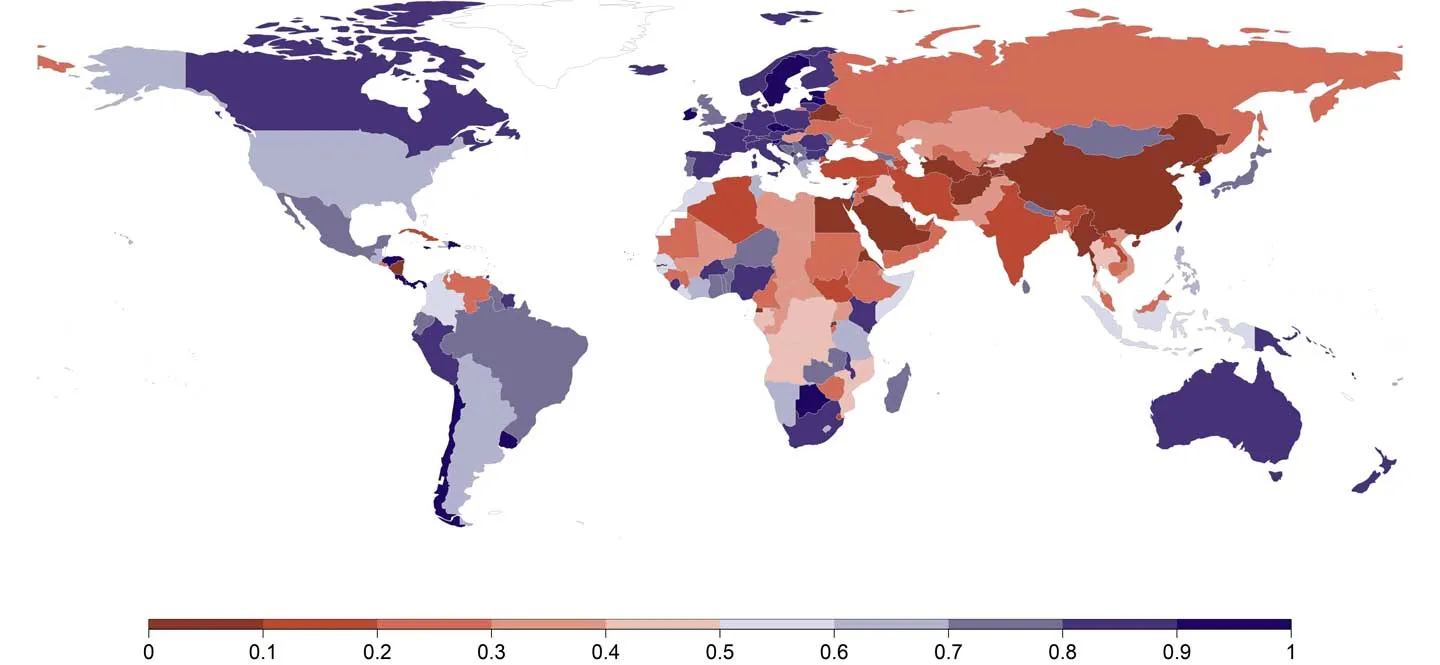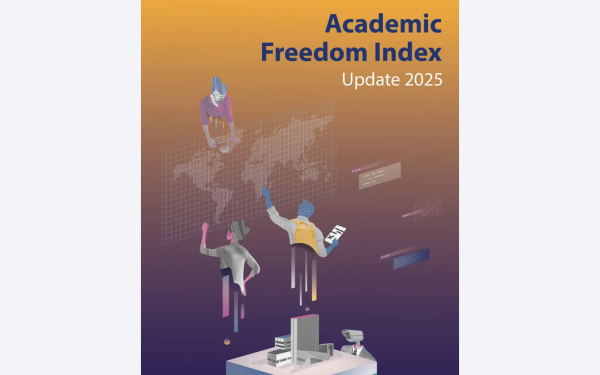
FAU/VDem
Academic Freedom Index 2025: Academic freedom has declined in 34 countries
#Global Engagement #DemocracyThe growing influence of anti-pluralist parties is often accompanied by a decline in academic freedom in the respective country. This is one of the findings of the latest Academic Freedom Index (AFI). It covers 179 countries worldwide.
The Academic Freedom Index provides an overview of the state of academic freedom in the world. In the 2025 update, it identifies 34 countries and territories where academic freedom has declined statistically and substantially compared to ten years ago. Only eight countries have seen an increase in academic freedom.
Decline in academic freedom in 34 countries
Among the countries where the decline in academic freedom was statistically and substantially significant are several democracies, such as Argentina, Finland, Greece, Israel, Portugal and the United States. In Austria and Germany, too, the decline in academic freedom was measurable, but in both cases the decline remains slight and is not yet substantially significant, according to the authors of the report.
Although academic freedom is still much better protected in democracies than in autocracies, these examples show that academic freedom can come under pressure even in democracies. This year's report on the Academic Freedom Index therefore focuses on countries where several parties are allowed to stand for election.

Academic freedom in 2024 (0-1, low to high). Data: V-Dem V-15 (Image: FAU/VDem)
The electoral success of anti-pluralist parties as a factor: Spotlight on Argentina, Poland and the United States
The report also points to the electoral success of anti-pluralist parties as a possible cause of the decline of academic freedom. Based on data covering a period of 50 years, it shows that academic freedom is at risk when anti-pluralist parties come to power. To explore this phenomenon in more detail, this year's report presents three illustrative cases: Argentina, Poland and the United States.
In all three countries, anti-pluralist politicians in power at the national or state level used very similar methods to gain more control over science, in particular by restricting institutional autonomy or freedom of teaching, and by cutting funding for research that contradicts the respective political vision.
A particularly remarkable decline occurred in Argentina, where the AFI score fell from a very high 0.97 to just 0.69 (on a scale of 0 to 1, low to high) within a year.
By contrast, the case of Poland shows that the decline of scientific freedom can be stopped when anti-pluralist parties lose power. Poland achieved a very high AFI score of 0.98 in 2014, i.e. before the 2015 parliamentary and presidential elections. By 2022, the country had reached a low point with an AFI score of 0.73. However, after the parliamentary elections in 2023, academic freedom in the country recovered again and now reached a value of 0.87 on the AFI scale.
Open Access and visualisation
The data used for the AFI 2025 update is freely accessible for further studies. The Academic Freedom Index website offers an interactive visualisation of the data, country profiles and further information on the index project. The report itself is available as a PDF on the AFI website. User-friendly graphics tools are also available to interested parties. These can be used by researchers, students or policymakers.

